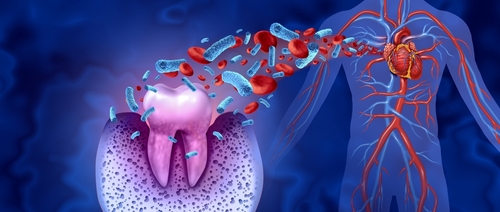Gum disease is a very prevalent condition in the adult population, yet not enough people know of its dangers. That is why below you will find information on this topic.
What is gum disease?
Gum disease is an inflammation and infection of the gums. There are two types of gum disease: gingivitis and periodontitis. Gingivitis is the less severe form of gum disease, where the gums are inflamed due to plaque. The good news is that this type is fully reversible if you step up your oral hygiene.
The second type of gum disease is periodontitis or periodontal disease. This is a much more serious form of gum disease, and it means your gums have progressed past the stage of gingivitis and can no longer be cured. Instead, periodontal disease can only be managed.
How does gum disease happen?
Periodontal disease happens when plaque builds up on the surface of the teeth, especially on the gum line. This bacteria then irritates the gum, which begins to move away from it, resulting in teeth that look longer and can be looser. Tooth roots can also become exposed. Unfortunately, as the gum recedes, so does the bone that holds your teeth into your jaw, which means they become even more unstable and can result in loss of teeth.
What does gum disease do?
At worst, the most serious form of gum disease can cause you to lose teeth, which will need to be replaced by a plate with false teeth or dental implants. Even if your periodontal disease is not severe enough for this, it often results in pain, loose teeth, gum infections and bad breath. There is always the risk that it progresses to the most advanced stage as well.
How can you prevent gum disease?
Prevention is always better when it comes to gum disease, especially as it can progress to periodontitis, which can never be cured, only managed for the rest of your life. To prevent gum disease, good oral hygiene is vital, and that includes proper flossing and regular dental hygiene exams. Indeed, by attending regular hygienist exams and check-ups, your dentist will be able to catch any gum disease in the gingivitis stage, which can be resolved before it progresses to periodontal disease.
What to do when you have gum disease?
If you are concerned about gum disease, it’s a good idea to see your dentist and get them to refer you to a a specialist. You can find out more about such a specialist, including periodontist costs, the types of treatments on offer, and the time scales involved, online. It’s important to see a periodontist because they are experts who specializes in gum health and will be able to go through all the latest treatments with you, including LANAP.
Many people find themselves in the position of getting periodontal disease because they have a dental phobia, which keeps them away from the dentist in the first place. Happily, there are some steps you can take to make seeing your dentist easier. One is to find a dental practice that works with nervous patients. Another is to make sure that you ask for numbing gel and injections for cleanings, as this can make them so much more tolerable.






